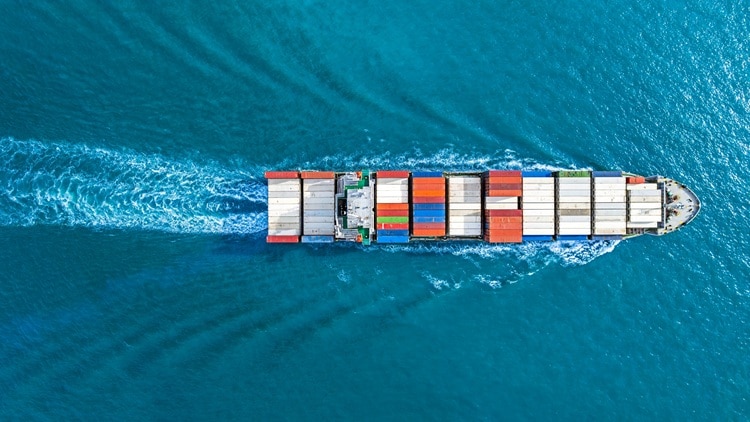Background
With continued developments in US trade policy, please see this week’s key updates in our latest round-up on tariffs, global tax and beyond.
The week in summary
US-Swiss Trade Agreement
The US is set to significantly reduce its tariffs on Swiss goods, bringing them down to 15% from an onerous 39% as part of a newly negotiated trade agreement. This comes after US Trade Representative Jamieson Greer confirmed that an accord had been finalised between the two nations.
Under the Framework, companies from Switzerland and Liechtenstein have pledged to invest at least $200 billion in the United States, with $67 billion slated for 2026 alone. Major firms like Roche, Novartis, ABB, and Stadler are already announcing projects tied to this agreement. The deal also includes measures to balance trade, streamline customs processes, and strengthen supply chain resilience, while capping reciprocal tariffs at 15%, mirroring the rate agreed between the US and EU.
Negotiations are set to conclude in early 2026, with implementation to follow shortly after, positioning the US to eliminate its $38.5 billion goods trade deficit with Switzerland and Liechtenstein by 2028.
Richemont Chair Johann Rupert, who was part of a group of Swiss business leaders meeting President Donald Trump at the White House last week, previously noted his belief that the hefty tariffs from Washington stemmed from a "misunderstanding" that would soon be resolved. Rupert stated during a press briefing following Richemont's latest earnings announcement:
"The Swiss and Americans are quite similar—they value independence and have a shared distaste for excessive government, among other things. I anticipate that this misunderstanding will be rectified shortly,"
Returning from discussions in Washington with Greer, Swiss Economy Minister Guy Parmelin remarked, "We resolved nearly everything."
President Trump Rolls Back Tariffs on Imported Foods Amid Inflation Concerns
President Donald Trump has announced a major reversal of his trade policy, cutting tariffs on over 100 imported food products. The executive order, signed on Friday 14 November and effective from midnight on Thursday 13 November, exempts items previously subject to Trump’s “reciprocal tariffs” (10% baseline levy on all imports).
The move follows growing public anger over soaring grocery prices, a key issue in recent elections where Democrats made significant gains. Economists and consumer groups have long warned that the tariffs were driving up food costs and straining household budgets. On Friday, the administration acknowledged the problem, stating that
“Certain qualifying agricultural products will no longer be subject to these tariffs,” the White House said, citing goods the US “cannot grow or produce in sufficient quantities”.
The exemptions include staples such as avocados, pineapples, beef, tomatoes, cocoa, spices, nuts, and coffee, with the latter having surged about 20% in late summer. While President Trump denied that tariffs fuelled inflation, he described the rollback as minor, saying prices would “be on the low side very soon.”
The tariff cuts also align with new trade agreements with Argentina, Guatemala, Ecuador, and El Salvador, reducing duties on foods the US cannot produce domestically.
Irish Reaction
Ibec Report: Trade Uncertainty Tops Irish Manufacturers’ Concerns Amid Global Tariffs
In contrast the AIB forecast, trade uncertainty has overtaken employment and labour costs as the leading concern for Irish manufacturers in 2025, according to Ibec’s latest Manufacturing Report. The report, which tracks trends since 2023, reveals a major shift in priorities. Until this year, the biggest challenges were attracting and retaining talent and managing labour costs. However, global trade tensions have pushed trade uncertainty from 19% in 2023 to 59% in 2025.
While international risks dominate, domestic cost pressures remain significant. Labour costs still concern 58% of executives down from 70% last year. Similarly, worries about talent retention has eased from 65% to 50%. Profit expectations have deteriorated sharply with 18% of firms anticipating growth, compared to 37% last year, with over a quarter expecting revenue declines. Despite these changes, manufacturing continues to play a vital role in Ireland’s economy, contributing €10bn in corporation tax, €14.8bn in wages and supporting more than 240,000 jobs.
However, the report stated that Ireland must safeguard its role as a leading manufacturing hub, according to the executive director of membership and sectors at Ibec, Sharon Higgins.
“The backdrop to this year’s report is defined by escalating geopolitical risk. While the first three quarters of the year have been consumed by trade tensions and the knock-on impact on business planning, we need to ensure Ireland remains a critical hub for manufacturing and is at the forefront of innovation and new opportunities.” - Sharon Higgins
The report also underscores Irelands strong position in key manufacturing segments, ranking first in Europe for two subsectors: exports of dairy and meat products, and specialised nutrition products such as infant formula. The study also noted that Ireland also holds second place in several areas, including vaccine exports and contact lens production.
EU to Scrap €150 Customs Duty Exemption on Small Parcels
In other news, EU finance ministers have agreed to abolish Low Value Consignment Relief which exempts goods under €150 from customs duties at import. Once implemented, all goods entering the EU will be subject to customs duties, aligning the system with existing VAT rules for imports. The abolishment of this relief is specifically targeted at e-Commerce goods coming into the Union and the incredible growth in this sector over the last number of years accounting for appoximately 90% of all imported items in 2024.
In the press release published on Thursday 13 November, Danish Minister for Economic Affairs, Stephanie Lose discussed the unfair competition for European businesses and the environmental issues concerned, stating;
“I am very pleased that we have reached an agreement on eliminating the €150 customs threshold. We ensure that duties are paid from the first euro, creating a level playing field for European businesses and limiting the influx of low-cost goods. We also agreed on the need to work towards a temporary solution as soon as possible in 2026.”
This change will take affect when the EU Customs Data Hub (central platform designed to streamline customs processes) becomes operational, currently expected in 2028. The hub will enable per-item customs debt calculation and notification, allowing full application of customs rules to small parcels.
Currently up to 65% of small parcels are undervalued to avoid duties, and the €150 threshold incentivises non-EU sellers to split shipments into multiple parcels. In 2024, 91% of e-commerce shipments under €150 originated from China, according to the Commission.
Recognising the urgency, the Council committed to introducing a simple, interim mechanism to levy customs duties on these goods by 2026, ahead of the hub’s launch in 2028. Work on this transitional solution will continue in the coming weeks.
We’re here to help you
Keeping up to date with US trade policies, trade agreements and new and existing tariff reviews which may lead to further tariff measures is crucial to assessing the risk to your supply chain and the impact these tariffs may have. Understanding your product portfolio and the impact that tariffs may have on your imports is an important first step. We are here to support your business with this analysis and navigating these choppy waters.
Specialist Tax Services
Helping businesses navigate risks and realise opportunities.
Contact us












Menu